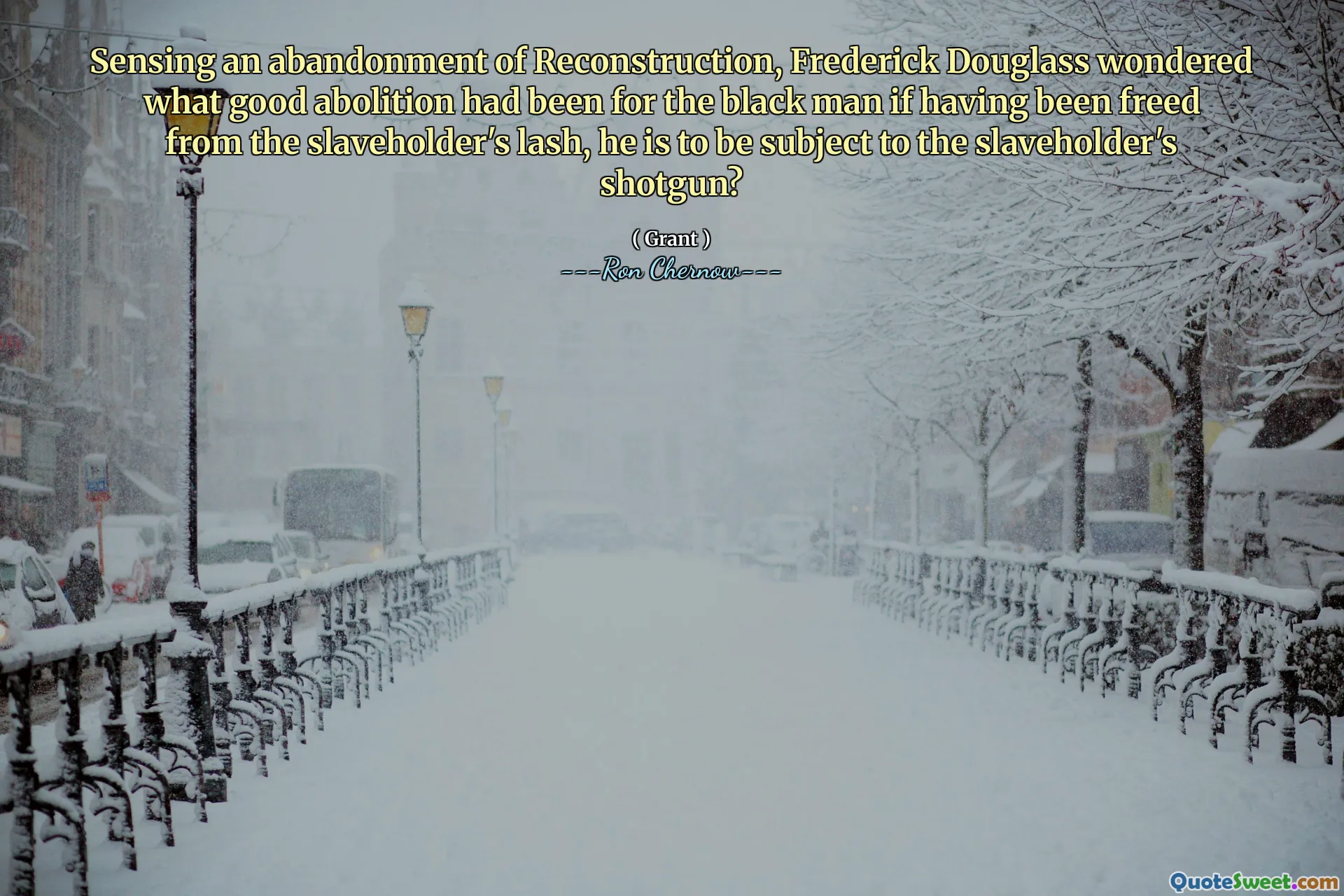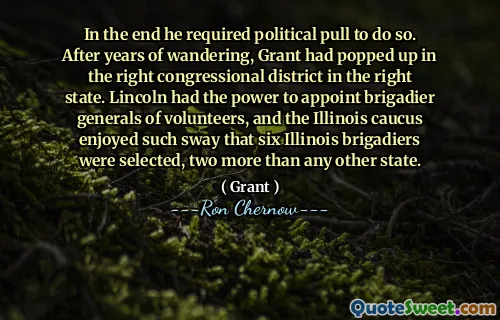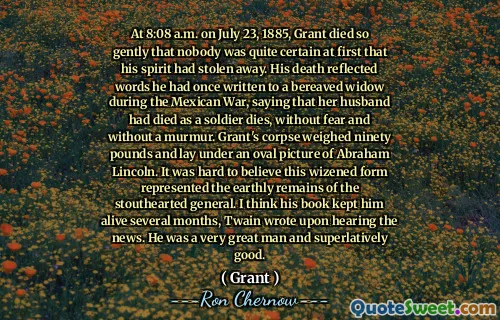
Sensing an abandonment of Reconstruction, Frederick Douglass wondered what good abolition had been for the black man if having been freed from the slaveholder's lash, he is to be subject to the slaveholder's shotgun?
Frederick Douglass's poignant observation reflects the tragic complexities faced by Black Americans in the aftermath of the abolition of slavery. Despite the formal dismantling of slavery, Douglass recognized that true freedom and equality had not been realized if newly emancipated Black individuals continued to face violent oppression and systemic racism. The metaphor contrasting the "slaveholder's lash" with the "slaveholder's shotgun" vividly illustrates this ongoing brutality, suggesting that while physical chains might have been broken, the threat of violence and intimidation remained a powerful tool to suppress Black Americans.
This quote invites a critical reflection on the Reconstruction era, which promised a reimagining of American society but often fell short due to political compromises and widespread resistance to racial equality. Douglass's inquiry implicitly questions the value of abolition if it was not coupled with genuine protection and justice for formerly enslaved people. His words highlight the enduring struggle for civil rights and underscore the importance of addressing not only legal freedom but also the social and political realities that can perpetuate inequality.
Moreover, the quote encourages us to think about the ways in which systems of power can adapt and persist, shifting from overt forms of violence to more insidious mechanisms of control. The balance between progress and backlash remains a critical arena in the ongoing fight for justice and equity, a lesson that echoes through history to contemporary movements for racial justice. Douglass’s insight is as relevant today as it was during Reconstruction, reminding us that the work of freedom is never simply about legal status but about lived experience and dignity.









